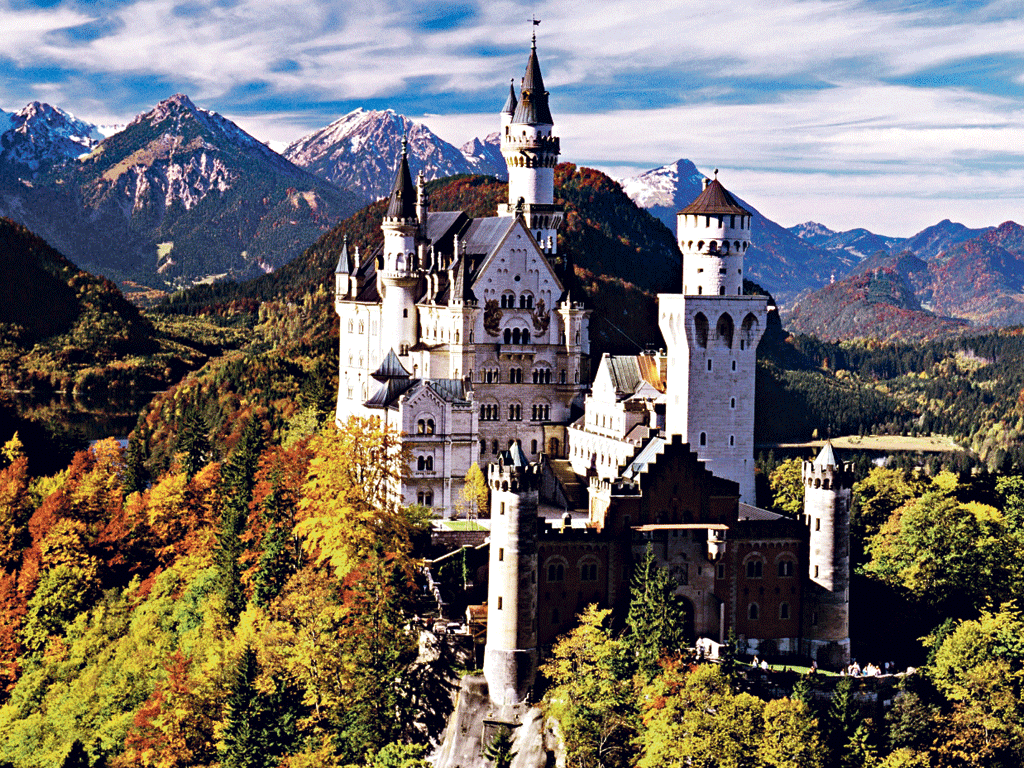We're not just here for the beer
Oktoberfest draws millions of visitors to Bavaria each year, but there's much more to this quirky German state

This week, several million Bavarians (and tourists) will be nursing Europe's biggest collective hangover, as Munich's Oktoberfest shuts up shop after another year. Many foreign visitors venture no further than the Bavarian capital and its vast beer festival, but beyond Munich lies a fascinating hinterland – a nation within a nation that remains unspoilt and unexplored. Ever since it was swallowed up by Germany 140 years ago, Bavaria has retained all the cultural trappings of an independent state. I've been coming here for 20 years – each time I find something new.
The Free State of Bavaria is the richest part of Germany and the most conservative – a bizarre blend of hi-tech know-how and old-fashioned Alpine kitsch. Bigger than Belgium and Holland combined, Freistaat Bayern stretches north all the way to the old East German border, but travellers tend to head south from Munich, into the Bavarian Alps. Here the men wear woollen loden jackets, the women wear dirndls and the Bavarian flag is a far more familiar sight than the tricolour of the Bundesrepublik.
The best place to begin a tour of Upper Bavaria is on the southern edge of Munich, on the banks of the Starnbergersee. Over 20km long and up to 5km across, this tranquil lake is on the doorstep of the Alps. Bavaria's favourite monarch, "Mad" King Ludwig, drowned in Lake Starnberg – many Bavarian patriots still believe he was murdered to help facilitate German unification under the rule of the Prussian Kaiser or to stop him bankrupting Bavaria with his flamboyant castles. He remains an iconic figure for Bavarians – a romantic dreamer far removed from the pragmatic bureaucrats in Berlin. Most tourists travel south-west from Starnberg to Ludwig's best-known castle, Neuschwanstein (the model for Disneyland), but I headed south-east, to Chiemsee, Bavaria's largest lake. At the lakeside town of Prien, surrounded by meadows and mountains, I boarded a ferry to Herreninsel (the Men's Island), once inhabited by monks, now the site of Herrenchiemsee – King Ludwig's replica of Versailles. Ludwig idolised Louis XIV, the French Sun King who built Versailles, and this is an eerie tribute .
If Herrenchiemsee is Bavaria at its most opulent, then Altötting, 50km away, is Bavaria at its most devout. Revered in this Catholic statelet as the birthplace of Bavarian Christianity, its Black Madonna is a place of pilgrimage, credited with all the usual miracles.
Pope Benedict XVI was born just a few miles from here, in a village called Marktl am Inn. A local microbrewery, Graminger Weissbrä*, is run by three sisters who brew their own wheat beer. The bar is full of locals and the leafy beer garden outside, shaded by chestnut trees, looks out across Bavaria's most sacred site. I walked uphill, into dense woods, leaving the old town below. I finished at Berggasthof Butzn Wirt, a quaint inn like a gingerbread house from the Brothers Grimm. My heart sank when the Schuhplattler troupe arrived but here in this authentic setting, this traditional Bavarian folk dancing was charming.
Maybe it was the wheat beer talking, but for me it seemed to sum up what makes Bavaria and its unique folk culture so special. On one level it's absurd and if it's not done properly it's ridiculous. But at its best it can transport you into a more amiable world.
Getting there
The writer travelled to Bavaria as a guest of Lufthansa (0871 945 9747; lufthansa.com), which flies to Munich from Heathrow, London City, Manchester and Birmingham. EasyJet flies from Edinburgh, Manchester, Gatwick and Stansted; Singapore Airlines from Manchester; and BA from Heathrow.
Staying there
The Hotel Zur Post (00 49 8671 5040; hotelpostaltoetting.de) is a historic hotel in Altötting. The Wohlfuhlhotel Ortnerhof (00 49 8663 8823; ortnerhof.de) is at Ruhpolding.
Join our commenting forum
Join thought-provoking conversations, follow other Independent readers and see their replies
Comments
Bookmark popover
Removed from bookmarks